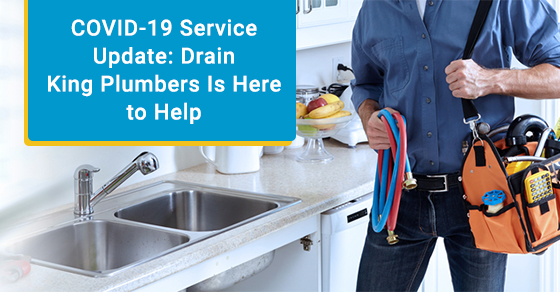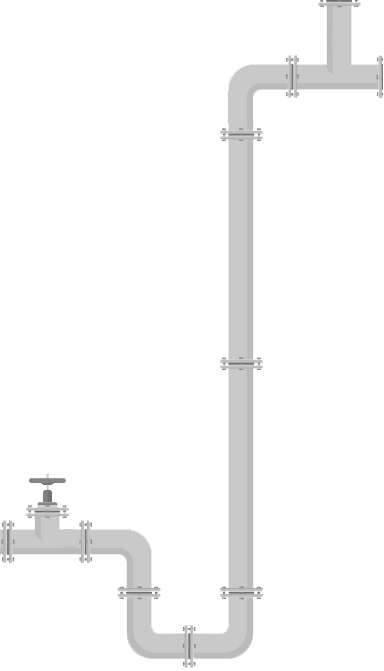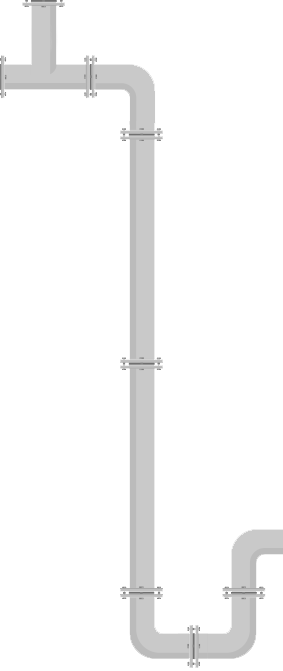COVID-19 Service Update: Drain King Plumbers Is Here to Help
Posted by Jason Genah on 08-06-2020

COVID-19 has not been easy for anyone in Canada. While healthcare workers and staff of essential businesses are at the frontlines, many of us are asked to do our part by staying home, often at the expense of our livelihood and normal daily routine.
With nowhere else to go — and not much to do — many Canadian households are dealing with increased water consumption and waste disposal. As a result, plumbing systems are suffering from overuse, resulting in many clogged drains and sewers.
With most businesses forced to shut down, a lot of homeowners are shifting towards DIY repairs and fixes — but clogged drains and sewers shouldn’t be part of that. While many fixes like changing light bulbs, furnace filters, and rearranging furniture are easy — and safe — to do on your own, unclogging a drain or sewer isn’t as simple. When done wrong, you could be looking at a larger plumbing emergency, like a messy back-up, or worse, indoor flooding.
With the risk of high exposure to COVID-19, you may be less inclined to call your plumber for a clogged drain or sewer. But here’s every reason why you should, and how you can protect your family when you do and avoid these plumbing emergencies altogether:
COVID-19 and Increased Waste
A lot of us are guilty of flushing waste items down the kitchen sink or toilet that we shouldn’t — at least once in a while. Paper towels, grease, and hygiene products cause clogs because they build up in the drains and sewers, blocking the flow of wastewater outside our homes.
Over time, these occasional clogs lead to back-ups and indoor flooding, resulting in a large mess and damage to appliances and furniture. In severe cases, you can even damage the city’s sewer pipes, such as those connected to wastewater treatment plants.
But with everyone now at home 24/7, a lot of us are more likely to flush these waste items down the sink or toilet, especially in busy homes with lots of little kids around. This is on top of increased water and other utility consumption due to being home all the time, which can overburden already clogged drains and sewers. And because the entire family is home with nowhere else to go, you also can’t afford a breakdown — plumbing fixtures need to function 24/7 to support your daily routine.
What Not to Flush or Pour Down the Drain
The last thing any of us want right now is to let strangers inside our homes to perform even the most essential repairs. No one wants to get sick — and proper disposal of household waste can prevent that now more than ever.
Preventing plumbing nightmares, like clogged drains and sewer back-ups, starts with knowing what you can and can’t flush down the drain. Check out this list of common household waste items that you may have been disposing of incorrectly — and where they should go to avoid clogging the drains and sewer lines:
- Hygiene products
Cotton swabs, dental floss, wipes, feminine hygiene products, and paper towels can clog the drains if flushed down the toilet. To prevent this, practise proper waste segregation of garbage items for scheduled collection.
- Fat, oil, and grease
It’s tempting to pour greasy liquids down the kitchen drain as you clean pots and pans, but these remain lodged in the pipes, forming sludge that blocks the flow of wastewater. When cleaning up food scraps and grease from meat, sauces and dressings, dairy products, soups, and cooking oil, make sure to collect these into a sealed container. Also, wipe down small amounts on plates and utensils with an organic paper towel that can be disposed of in the green bin.
You may opt to install a grease trap in the kitchen sink or dishwasher to prevent oil and fat from being flushed down the drain when washing dishes.
- Medication
Whether it’s spills or expired pills and syrups, avoid washing these drugs down the sink, as these can harm the environment, on top of lodging in the drains and causing clogs with other waste items. Instead, you can return unused medication to your local pharmacy, or drop these off at your city’s hazardous waste depot.
- Hazardous waste
Cleaning products, such as bleach and disinfectants, car products, like motor oil and window washer fluid, paints, pesticides, and personal care products, are all considered hazardous waste. They can cause both clogging and degradation of drains and pipes. These need to be collected and dropped off at a local depot close to you when it’s safe to do so.
Safe Plumbing Repairs During COVID-19 — Our Guarantee
At Drain King Plumbers, we understand that many Toronto homeowners are doing the responsible thing — limiting outside contact and refraining from inviting family, friends, and especially strangers into their home. But you shouldn’t have to suffer through a clogged sewer or drain and risk a plumbing emergency with DIY repairs.
Drain King Plumbers is constantly monitoring our plumbers’ health and asking those with flu-like symptoms to report their condition, get tested, and self-isolate to prevent sending them to customers’ homes for repairs. Before booking plumbing repairs, we ask customers if they have been diagnosed with or exposed to COVID-19, or if they are experiencing colds and flu-like symptoms. If so, we may reschedule the repair only when it is safe to do so.
To prevent the spread of COVID-19 during plumbing repairs, our plumbers are equipped with and trained to thoroughly sanitize fixtures, tools, and surfaces with disinfectant wipes and cleaning sprays. We also equip each team member with masks, single-use gloves, and eye protection to use at each job site. Our plumbers have been trained to maintain a safe physical distance of at least 6 feet from customers during the repair, and wipe down their tools and work area.
Your safety is our top priority, and with that comes a stable and conducive home life, especially now that your entire family is home. That’s why our plumbers take every precaution when you call us for an emergency repair. It allows you to resume your daily routine without putting your family’s health at risk.
To learn more about our COVID-19 safety protocols for emergency plumbing repairs, call Drain King Plumbers at 1-833-983-5301 or contact us here.




